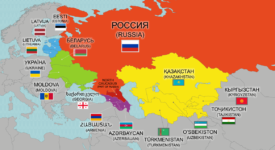Belarus detained at least six journalists from two popular news sites in its capital in an ongoing attempt to encroach on independent media. They were accused of “unauthorized access to computer information for reasons of personal gain.” The Council of Europe and Reporters Without Borders said they were concerned about the detentions while the Belarusian foreign ministry said they had “nothing to do with issues of press freedom”.
Belarus’ Investigative Committee said that it had detained journalists from Deutsche Welle, Belarusians and the Market, a business weekly, and Radio Free Europe/Radio Liberty following a series of raids. State news agency BelTA has accused the journalists of not having paid subscription fees, with officials saying that its “business reputation was harmed.” The journalist could face up to two years in prison.
The committee said it had initiated a criminal case after an inspection by Interior Ministry officers that found 15,000 instances of unauthorized access to BelTA’s exclusive section, where breaking news tends to be published five to 10 minutes before it hits the agency’s public wire. “The crime inflicted considerable damage” on BelTA, “leading to the illegal procurement and use of information protected from unauthorized access, as well as to the erosion of the enterprise’s business reputation,” the Investigative Committee commented.
Belarus, ruled by authoritarian Lukashenko since 1994 – who is often called Europe’s last dictator – is ranked 155th out of 180 in 2018’s Reporters Without Borders world press freedom index. Journalists working for foreign media continue to have arbitrarily denied official accreditation. More than 100 journalists and bloggers have been arrested for failing to obtain the accreditation, some repeatedly.
EU leaders have urged Belarus to do a quick investigation and free all detainees. “Legislation must be respected but investigations do not always require arrests which should be used as an ultimate tool,” a statement issued by the Council of Europe said. “Freedom of media is one of the most important human rights in a democratic society,” the statement also said. “It should be thoroughly respected everywhere in Europe.”







